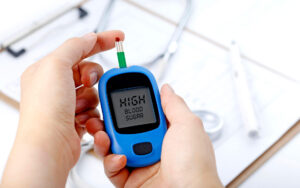What are 3 things vitamin D does for your body?
We consume vitamin D as a nutrient, but our bodies also produce it as a hormone. It is a fat-soluble vitamin with a long history of helping the body retain and absorb calcium and phosphorus, both of which are essential for bone development.
Additionally, research in the lab demonstrates that vitamin D helps lessen inflammation, manage infections, and slow the growth of cancer cells. Scientists are actively researching additional potential activities for vitamin D, which has receptors in many bodily organs and tissues and suggests crucial roles beyond bone health.
Is taking vitamin D every day good for you?
To treat and prevent vitamin D insufficiency, supplements with vitamin D are frequently utilized. People at risk for deficiency include those who don’t get enough sun and those who are 65 or older. People also utilize vitamin D for heart disease, asthma, hay fever, weak and brittle bones, and many other ailments, although many of these claims are not well-supported by science.
Additionally, there is little solid data to back up the use of vitamin D supplementation for COVID-19. But it’s crucial to keep your vitamin D levels in check.
You can achieve this by ingesting 400–1000 IU of vitamin D daily or by basking in the sun for 15–30 minutes each day.
This could be a result of various study designs, variations in participant dosages, and variations in vitamin D absorption rates among various ethnicities.
How do you know if you’re low in vitamin D?
Your body requires vitamin D in order to maintain and develop your bones normally. Lack of vitamin D in your body is referred to as vitamin D deficiency. Your bones and muscles are the main organs affected. Infants, toddlers, and adults can all suffer from vitamin D deficiency.
People who have a darker complexion and wear clothing that covers a lot of their skin, particularly in Middle Eastern nations, may be more likely to suffer from vitamin D deficiency.
In adults, vitamin D deficiency is less noticeable. Some warning signs and symptoms include:
- Fatigue.
- a bone ache.
- weakness, pains, or cramps in the muscles.
- changes in mood, such as depression.
“You can get your vitamins from us!… Don’t hesitate to contact us for more information!…”
For more details: https://wellnessadvice.ca/pharmacy-services/










